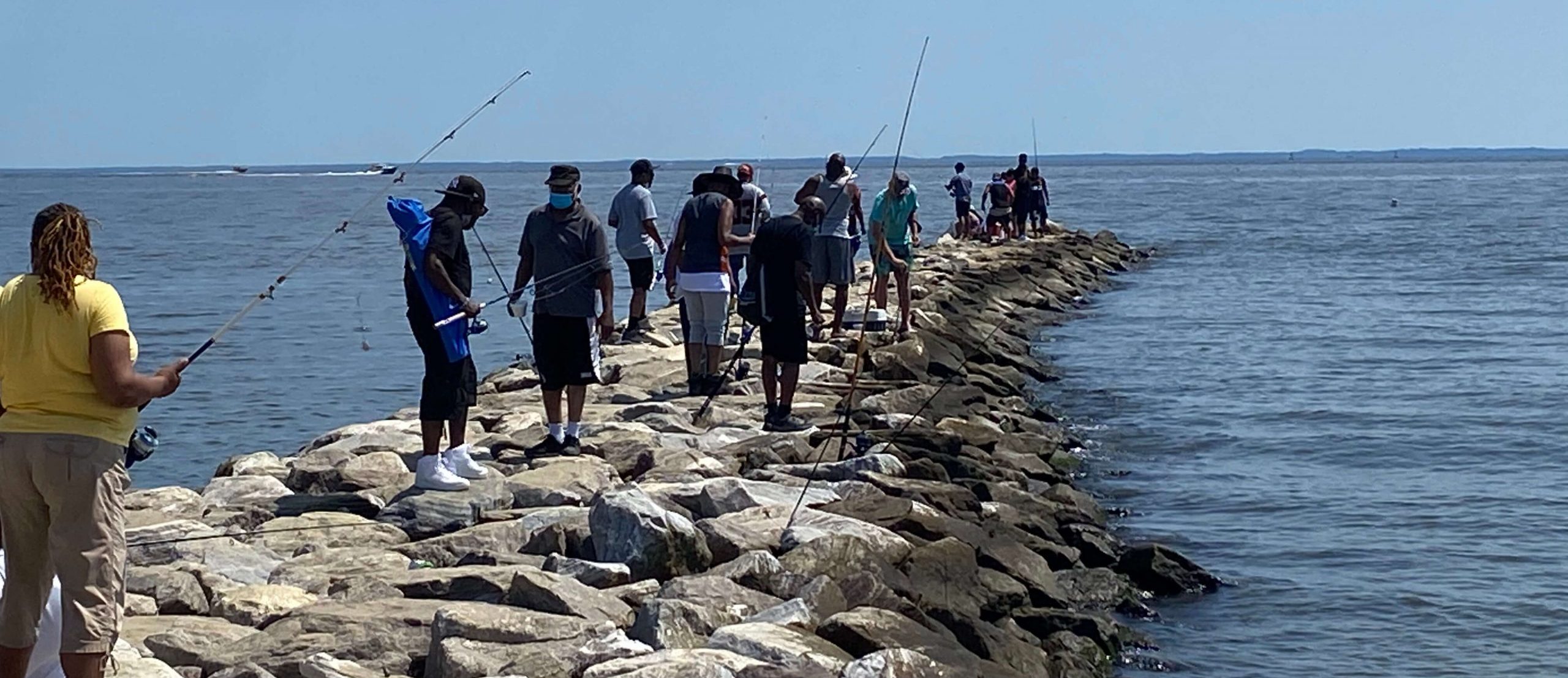In honor of National Fishing Day today, June 18th, we would like to talk about one of our alternative therapeutic activities – Piscatorial Therapy. Also known as fishing therapy, it has documented results proving that fishing quiets the mind and calms the nerves. When looking at a veteran returned from war, most people only think about the physical trauma. What you can’t see is the mental trauma, which is just as important but hardest to treat. Taking our men out fishing is a way for them to enjoy a therapeutic activity in a stress-free environment, away from the treatment facility.
Fishing is a low-impact exercise that helps the men slow down to meditate and enjoy nature. It is a way for them to get outdoors interacting with one another giving a sense of camaraderie. But it also can be a solo activity, helping them become comfortable with themselves. Coming from a military background, these vets are used to the sense of community their fellow soldiers brought. Returning to civilian life without that community can cause a loneliness that is hard to fill. Most of our residents turned to drugs and alcohol as a clutch. When addicted to a drug, your time is consumed by that drug. How to fund it, where to find it, how to hide from police, then start the process all over again. Their mind is so focused on that one thing that they don’t have a chance to focus on becoming comfortable in their own skin. Here in the walls of The Baltimore Station (TBS) the one thing that these men spent all their time on is gone. They now have a void in their lives that they need to fill. TBS offers alternative experiences they have never had before, giving the opportunity to acquire transitional skills they didn’t previously have. After one resident’s first fishing trip, he fell in love with the activity and now goes whenever he is able. He found a new healthy passion through this experience that he can participate in no matter where he lives.
Before heading out on a fishing trip, the men partake in group sessions where they talk about the attributes of a fisherman- patience, persistence, analytical, enjoys solitude. These group discussions help the men receive life understanding. The trips help them apply what they learn in group to out in the real world. The application of this understanding comes from the experiences on each trip. To understand the lessons that can be learned from fishing, you must also look at the attributes of an addict: self-centered, instant gratification, impatient, blames others.
The act of fishing is a way for our men to take their mind off internal conflict and focus on the task at hand. Fishing helps focus their mind. Once they locate the fish, they must choose the correct lure and reel it in once hooked without the fish letting go first. This critical thinking helps alleviate stress and anxiety. They must be patient while fishing as some days you go out and only catch one fish. This helps the men learn to fight the instant gratification craving. Being alone while fishing, they have to face themselves, and learn contentment with themselves, which they did not previously have. If they don’t catch any fish, they can’t place the blame elsewhere for they were participating in a solo activity. Some men have to face their fears if they catch t a fish. Maybe this one was bigger than they expected, and they are now nervous that they won’t be able to reel it in. Piscatorial Therapy not only helps with PTSD, depression, and nerves, but it is a great way to help our men learn new skills on their road to recovery from drugs and alcohol.

Leave A Comment
You must be logged in to post a comment.